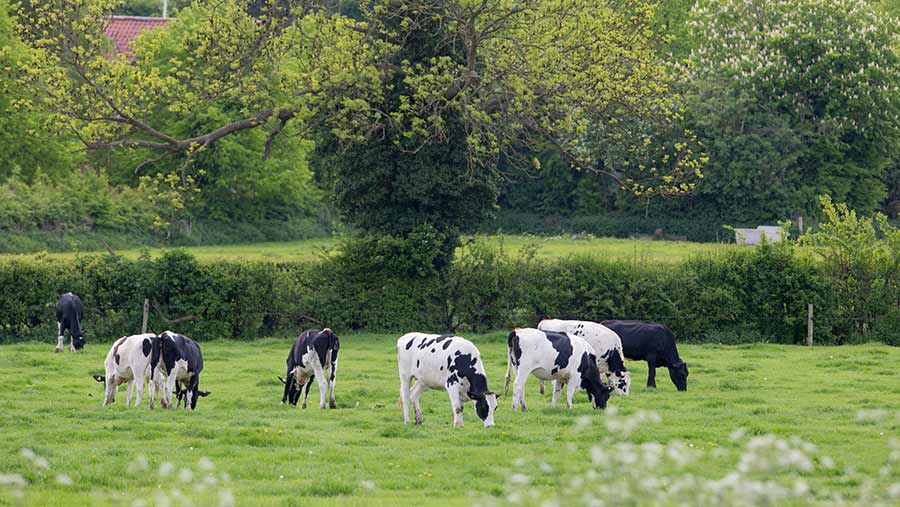Farmers scapegoated in carbon emissions debate, says TFA boss
 © Tim Scrivener
© Tim Scrivener Farmers are being scapegoated in the discussions on reducing carbon emissions when bigger problems lie elsewhere, the head of the Tenant Farmers Association (TFA) has said.
George Dunn spoke out on farmer-bashing following the publication of a landmark report by the Worldwide Fund for Nature (WWF) UK – Land of Plenty (PDF) – which recommends at least a 30% reduction in meat and dairy consumption by 2030 to curb carbon emissions.
He told Farmers Weekly that the WWF’s call to shift production systems and diets away from red meat to reduce emissions “lacks credibility” as UK agriculture is responsible for only 10% of the country’s total carbon emissions, while transport and energy account for more than half of total UK emissions.
See also: Towards Net Zero: How to reduce emissions and store carbon
“We should put all of our efforts into decarbonising those sectors rather than seeking to pillory our livestock farmers who are already producing to high levels of carbon efficiency,” said Mr Dunn.
“Livestock farmers are also responsible for storing and sequestering carbon every day of the week through their careful grassland management as well as sustaining landscapes, biodiversity and the wider environment – they deserve our support, not our criticism.”
Problems ‘lie elsewhere’
Mr Dunn added that farmers were being made scapegoats in the carbon debate when the problems “clearly lie elsewhere”.
A better solution, he suggested, would be to urge UK consumers to switch their consumption away from imported meat produced to lower carbon standards, and towards domestically produced meat.
“We could do this by taxing carbon at our border and through our standards in trade,” said Mr Dunn.
“Eating more meat and dairy products from UK sources to offset what we import to reduce our carbon footprint will also save the carbon emitted through the transportation used to bring in imported product from abroad – surely that is a win-win situation.”
NFU deputy president Stuart Roberts told The Guardian that UK livestock production systems were much lower emitters than those overseas. Domestic emissions from beef and dairy were less than half the global average, he said.
“If we reduced sustainable production here, it would only export our carbon footprint to countries which don’t meet our own high environmental standards, and risk seeing food imports reduced to standards that would be illegal here,” he added.
“This, alongside assumptions that heavily processed and imported plant-based alternatives are always better for the environment, could be devastating for global climate ambitions.”
‘Less but better’ meat
Vicki Hird, head of sustainable farming at the campaigning organisation Sustain, said the government must encourage British farmers to farm more sustainably and adopt a “less but better” approach to meat production.
“The government could help by incentivising the production of sustainable, pasture-fed beef and only choosing less but better meat and more plants in public procurement contracts,” she said.
“The government spends £2bn a year on food and could be a lot smarter and do a lot more good with what it buys.”
The WWF report also calls for UK agriculture to slash its use of imported soya feed and fertiliser inputs, by at least 31% by 2030 and 57% by 2050 from 2018 levels.
